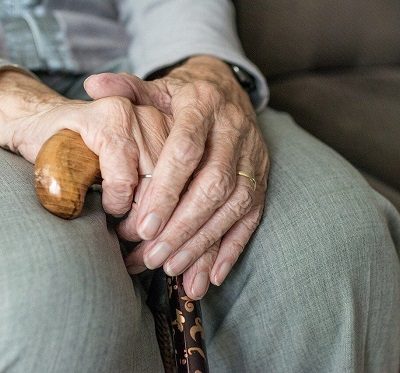

In the UK, more than 100,000 people have a stroke or TIA (mini-stroke) every year. If your loved one has had a stroke, it’s totally natural to feel anxious about what happens next. Will they be able to live at home? Will they need to move house or move into residential care? If they need support with everyday tasks, who is going to help them? Stroke recovery is often a long process and many people require long-term support and care after a stroke. However, many people are able to return to their own homes with the support of a homecare service.
Care at home can help the whole family get back to normal after a stroke. Whether you choose live-in care or regular care visits, homecare can help stroke survivors reclaim their independence and receive the support they need in their own homes.
Following a stroke, hospital staff will conduct a care needs assessment. This will determine what kind of support your loved one will need to continue their recovery at home. For example, your loved one might need help with getting out of bed or preparing their meals. After stroke care at home can provide this practical support from a professional carer. Your loved one may be eligible for reablement care through the NHS or local authority. However, it’s likely they’ll have a series of different carers coming in and out of their home and you probably won’t have much say over which carers you get.
One of the advantages of homecare services like Abing Homecare is that you can request a carer with specific skills or personality traits to suit your loved one’s needs. You’ll be able to arrange a full-time live-in carer if your loved one requires round-the-clock support. Alternatively, you can arrange domiciliary care visits from the same carer so that your loved one receives consistent care from a friendly face.
When it comes to arranging care at home after a stroke, the first step is to arrange a Needs Assessment. We offer full and detailed needs assessments entirely free of charge. From there, we’ll work closely with you and your loved ones to find the best possible carer who can meet your loved one’s needs. We offer a few different homecare services for stroke survivors:
This is when a carer makes regular visits to your loved one at home. You can choose the frequency and duration of these visits according to your loved one’s needs. Perhaps they only need someone to pop in and help them to get up and get dressed in the morning. On the other hand, they might benefit from multiple visits per day, at mealtimes for example. Domiciliary care visits allow your loved one to maintain their independence and stick to their existing routine at home.
Some stroke survivors will have more complex care needs after a stroke. For those who require support throughout the day and night, live-in care might be the best option. This is when a professional carer moves into the home to support somebody full-time. They can help with medical needs such as administering medication as well as practical tasks like washing, cooking, and continence care. We will make every effort to match your loved one with a live-in carer they will get along with. Carers can provide much-needed companionship and emotional support as well as practical, physical care.
You may decide to be your loved one’s primary carer and support them at home yourself. If this is the route you choose, we can still provide support by arranging respite care whenever you need a break. We all need a rest from time to time and respite care allows you to take some time for yourself while ensuring your loved one stays safe. Without respite care, your loved one may need to stay temporarily in a care home while you are away. This can cause confusion and distress, as well as considerable expense. Respite care is an affordable alternative.
Arranging care at home for your loved one couldn’t be simpler. Simply give our friendly team a call or get in touch online to arrange your free Needs Assessment. We’ll be able to arrange the care you need quickly and efficiently.
To find out more about our services, you can read this helpful blog post or give us a call. We’ll be happy to answer any questions you may have.
Editor’s Note: This article was updated on 15th March 2022 to reflect current information.